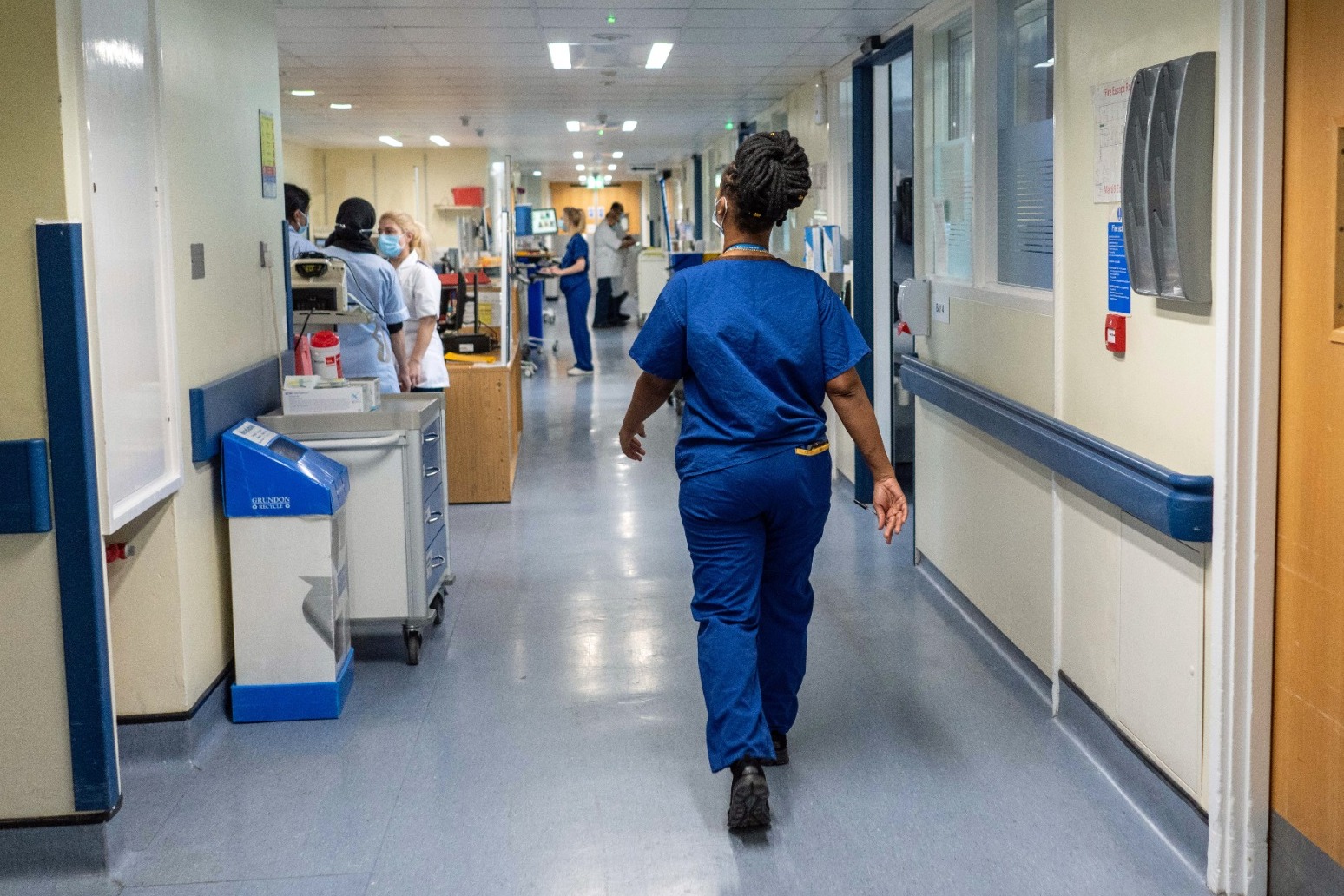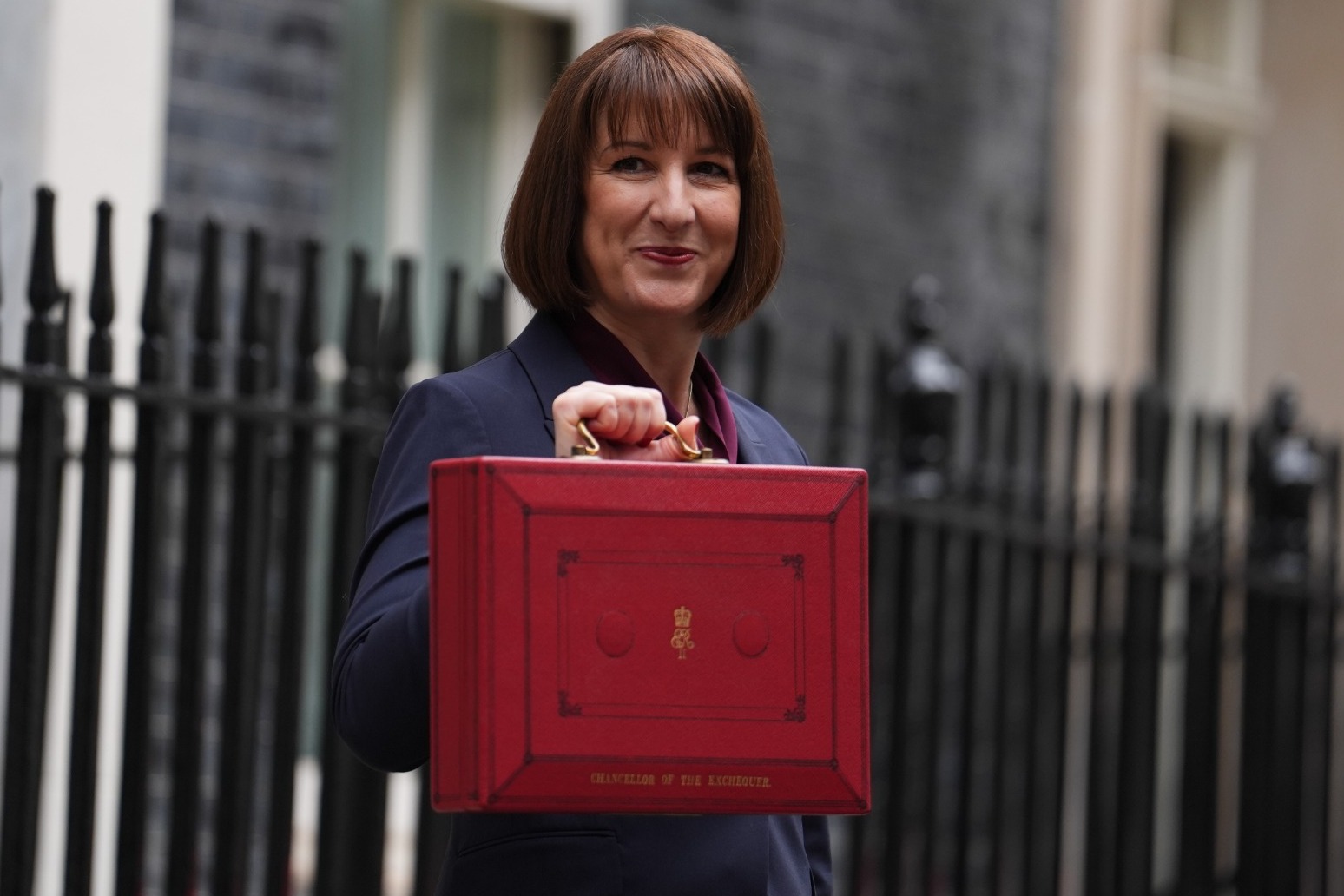
Hospitals in England are “close to full” as a significant number of beds are occupied by people who are medically fit to be discharged, health officials have said.
It comes as medics are dealing with a rising tide of people suffering with the winter vomiting bug.
NHS England said pressure on hospital capacity remained high last week with an average of 96% adult beds occupied and a total of 98,101 patients in hospital each day – higher than at any point so far this winter.
One leading medic warned that problems with so-called “delayed discharges” means that hospitals can “grind to a halt”.
An average of 13,776 hospital beds per day were filled last week in England with patients who were fit to be discharged, according to the latest weekly snapshot of the performance of hospitals in England.
This was up from 13,426 the previous week.
On average, 41% of patients ready to leave hospital last week were actually discharged each day.
The figures also reveal that the number of people in hospital in England with norovirus is continuing to climb and has hit another new high for this winter.
An average of 961 hospital beds were filled each day last week by patients with diarrhoea and vomiting or norovirus-like symptoms, up 7% from 898 the previous week.
Norovirus is a stomach bug that causes vomiting and diarrhoea.
It usually gets better in around two days with most patients able to care for themselves at home, but some people – including young children; the elderly or people with weakened immune systems – are at risk of suffering more serious and prolonged illness.
But flu levels in hospitals in England have fallen for the fourth week in a row.
An average of 2,461 flu patients were in beds each day last week, including 122 in critical care.
The NHS situation report also shows that 32.2% of patients arriving by ambulance at hospitals in England last week waited at least 30 minutes to be handed over to A&E teams, up from 31.2% in the previous week.
Some 12.5% of ambulance handovers last week were delayed by more than an hour, up week-on-week from 11.3%, but lower than the peak of 21.3% in early January.
Professor Julian Redhead, NHS England’s national clinical director for urgent and emergency care, said: “Hospitals are continuing to treat hundreds of patients who are ill with the highly infectious and unpleasant norovirus bug, with the rate of cases at the highest level recorded for this time of year since 2020.
“The twin pressures of winter viruses and problems discharging patients means hospitals are close to full – even as more beds have been opened to manage the increased demand.
“While pressures on hospitals remains incredibly high, it’s vital people continue to use NHS services in the normal way – using 111 and 111 online if you need advice and support for health conditions, and only using 999 or attend A&E in life-threatening emergencies.”
Amy Douglas, epidemiologist at UK Health Security Agency, said: “Norovirus cases are way above what we would usually see at this time of year and outbreaks in hospitals continue to rise.
“Just because you’ve had norovirus doesn’t mean you won’t get it again.
“It’s really important that if you have diarrhoea and vomiting, you take steps to avoid passing the infection on. Please avoid visiting people in hospitals and care homes to prevent passing on the infection in these settings.
“Do not return to work, school or nursery until 48 hours after your symptoms have stopped and don’t prepare food for others in that time either. This is because you can still pass on the virus in the days after you stop being sick.”
Dr Adrian Boyle, president of the Royal College of Emergency Medicine, said: “The system is gridlocked. When there is so little capacity, the flow of patients through the hospital grinds to a halt.
“You can keep adding people into the system through the emergency department but if you can’t discharge them from wards when they are well enough to go home, the system breaks down, and we see the result in ED corridors and car parks.”
Patricia Marquis, from the Royal College of Nursing, added: “Nursing staff say there is no end in sight to the pressures on the wards.
“Record norovirus levels are taking up precious bed space, whilst thousands are stuck in hospital because of a struggling primary, community and social care system.
“Every day patients are being admitted only to be treated in corridors in unsafe and undignified conditions.”
Dr Layla McCay, from the NHS Confederation, said: “Bed closures due to norovirus and insufficient care capacity in the community are still leading to longer hospital stays, less bed availability for new admissions, and increased pressure on healthcare resources.”
Saffron Cordery, interim chief executive of NHS Providers, added: “This is sign of just how much pressure the service has come under this winter – one of the worst many trust leaders have ever seen.”
It comes as NHS England released details of its productivity gains.
The central NHS body said that acute productivity had grown by 2.4% in the first seven months of this financial year.
It said that NHS staff had delivered a 6.3% increase in “acute activity” in the same time frame.
And NHS England said £5.7 billion of savings had been made this year through “reduced staffing costs”.
Published: by Radio NewsHub





